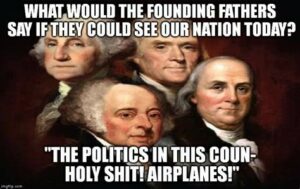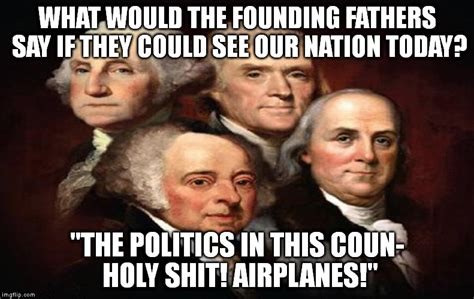
On Tuesday, returning to the courtroom after a week’s recess, it was easy to imagine John Eastman felt a sense of anxiousness for what testimony in the days ahead would put on the record. On the bright side, he may not have to worry about practicing law in California anymore once all is said and done. And for a legal encore, next up there’s Eastman’s ticket to ride a midnight train to Georgia. Fun time on this inevitable leg of his sedition journey with criminal charges to confront. Toot, toot!
Opening with good morning intros and a yay to start the day was an announcement from Judge Roland for an early out. Scheduled witness was John Yoo, constitutional law scholar and Emanuel S. Heller Professor of Law at the University of California, Berkeley. Yoo had given expert testimony on Sept 12th in support of an originalist legal theory that interprets the Constitution and other documents during the founding period as they were understood at the time they were written. Yoo’s conclusions differ from Matthew Seligman, former Fellow at the Constitutional Law Center at Stanford Law School who had also testified earlier in the trial. The historical record and precedent regarding the President of the Senate’s role in resolving electoral voting disputes is subject of great debate among constitutional scholars and vary in opinion.
Judge Roland set limited guidelines for the scope of Yoo’s expert testimony on several issues: 1- regarding Eastman’s use of adjournment vs recess or delay in a document he wrote related to the Jan 6th electoral count, Yoo cannot testify to what Eastman may have meant, 2 – historical precedent in the VP role as President of the Senate related to disputed elections, he can testify to an an expert witness, 3 – on the 12th Amendment which outlines the procedure of how the President and Vice President are elected, specifically so that they are elected together and of the same party, Yoo is designated as an expert witness.
Miller appeared not pleased with being taken to task as he rattled his words at Judge Roland as to his opposition to her findings, and she responded with luster. Much to Miller’s disappointment, Judge Roland had done her homework reviewing Yoo’s deposition during recess last week. She referred to page numbers, specific lines in testimony and rendered pointed retort to each of Miller’s long drawn out efforts to have it his way and reverse her ruling. Why he tries Judge Roland’s patience, one wonders.
Miller brought attention on the adjournment wording Eastman used in his legal assessment about the electoral count and communicated it to others. Eastman’s use of the adjournment term rather than recess or delay in a joint session of Congress on Jan 6th proved once more not much, if anything, is going to slip by Judge Roland.
Miller contends that Eastman’s use of adjournment was inaccurate and he essentially implied that Eastman meant to write recess instead. A recess is a temporary break in a Congress session, adjournment ends the session. Judge Roland’s response made note that in the legal profession, all know words are important, so they’re chosen wisely. She read straight from the exhibit Eastman’s using adjournment in his strategic plan to stop the count and then commented that postpone, recess or delay were not to be seen at all in his referencing the electoral count on Jan 6th. Miller’s work around is that Eastman will try to clarify himself during a later return to the stand. Oh joy, more Eastman on the stand. /s
Miller burned so much time arguing his stance that Yoo was not sworn in to testify until after the lunch break. My take away from the entire morning was that this judge rules with logic and receipts and it’s a waste of court’s time to word salad an attempt to have a ruling reversed. Failed is all I’ve seen in Miller’s struggle to affect Judge Roland in this regard. Also, a clarifier by the judge to the State Bar’s inquiry about revisiting testimony that’s already been given was that it will not be allowed.
Before going off the record for lunch break, the State Bar asked for scheduling clarification for planning purposes with an end date of Oct 6th. Judge Roland stated plans for closing arguments to be heard on that date.
Miller segued to broach the addition of dates he may need to complete his witness list and all that entails including cross examination from the State Bar and other time eaters along the way. Miller suggested Eastman will be restricted in his defense with the current schedule quickly coming to a close.
Judge Roland made mention of the time Miller was wasting right then and there, also adding that the court had granted team Eastman a 6-week continuance that delayed the start of the trial. She stated, “We’re not going to go on forever and ever and ever.” Also made clear was that 6-weeks to 2 months of time synchronizing schedules for extra time won’t be happening. Judge Roland is privy to games people play and reacts accordingly.
Professor Yoo began his remote testimony after the lunch break. Yoo had co-authored an article for the Case Western Reserve Law Review titled, Who Counts? The Twelfth Amendment, the Vice President, and the Electoral Count. The process from draft to the final published copy was detailed. Yoo testified the only difference between the two is found in the footnotes. In his questioning, Miller was called out by the judge for leading the witness. She briefly referred to Miller’s concern about limited time left in the trial, yet he was wasting court time with leading questions. Judge Roland is in pursuit of that light at the end of this creepy attorney Eastman tunnel. Won’t be long now, though most certain seems like way longer than this traitor deserves.
Yoo reiterated his originalist ideas citing references to the ratification of the Constitution, debates of the day captured in writings such as newspapers and pamphlets from that period. Facts surrounding the presidential elections of 1796 (Adams) and 1800 (Jefferson) were examined as the first disputed elections. A report in evidence written by Ackerman and Fontana questions the electoral count circumstances from these elections.
Unfortunately, tech issues interfered with the quality of Yoo’s testimony. When his screen freezes and gaps in his audio persisted, Judge Roland directed the IT people to figure out a solution. Apparently, Yoo was running a diagnostic at the time of his testimony and apologized to the judge for that oversight.
Continuing with proceedings while the tech team worked on Yoo’s glitch, the State Bar objected to revisiting the testimony regarding Adams and Jefferson having already heard Yoo’s views during his time on the stand on Sept 12th.
Judge Roland gently reminded Miller that testimony regarding those elections was given more in depth than Miller would like to recall. In other words, Miller got called out on trying to circumvent Judge Roland’s notice that issues already testified to would not be rehashed moving forward.
As Yoo’s connection continued to freeze, an off the record time allowed for the IT team to direct him through to the court receiving his audio for the record via phone while his freeze frame lingered for the remainder of the afternoon.
Miller focused on having Yoo explain different viewpoints that may or may not support Eastman’s naughty treasonous acts in trying to overturn the 2020 Presidential Election. Apparent was that Yoo is not in the same school of thought as Seligman. Seligman had concluded in his scholarly work that the VP, as President of the Senate, had no authority to reject electors presented. Yoo contends his writings don’t attend to the structure of the Constitution in that Yoo believes that Congress should not be involved in any way resolving disputes in the electoral count to choose the President.
Yoo refers to the 1796 and 1800 Presidential elections in which Adams and Jefferson resolved disputes about electors, disregarding Congress. For Adams in 1796, the electors in Vermont were in dispute. At that time, political parties were arising and the Electoral College was born. It was an intricate moment in American history. Given the early days of America and circumstance of emerging political protocols, when all was said and done, Adams counted the elector votes, including the disputed four Vermont electors that gave him the majority. He then declared himself president, so the story goes. Per Yoo, he stated he thinks Seligman disregards the 1796 election in his research, but said he doesn’t know why.
Yoo again cited an article co-authored by Ackerman and Fontana about the 1800 Presidential Election, when Jefferson was Adam’s Vice President while campaigning for the presidency himself, from my understanding. Georgia’s electors were under scrutiny per Yoo’s testimony about the circumstance surrounding that election. The controversy in Georgia was that it had not delivered their electoral votes properly, Yoo’s testified. Jefferson won the presidency in this high stakes election, having ignored the Georgia irregularities, according to research put forth by Ackerman and Fontana in the Atlantic article How Jefferson Counted Himself In. Of note was that these two elections occurred in the time period between the original Constitution ratification and the 12th Amendment in 1804.
It’s very interesting, the Jefferson/Adams saga and of course Eastman wants the history of those contested elections used to cover his butt on his malicious use of his law license in the march to the Jan 6th insurrection. So much chatter Yoo had about it paired with Miller’s protensive questioning no lie challenged me to attend to the context rather than the dullness of the persona each projected.
After exhibits, and all the back and forth they bring, Yoo did clarify that he was not testifying that other scholars’ ideas and conclusions as invalid, even if in opposition to his.
Early release kicked in, not a moment too soon. Judge Roland asked Miller how much more time he needed with Yoo on Wednesday. Miller anticipated at least 30 additional minutes, with the State Bar estimating a 90 minute cross examination. With that, not a minute more was lost, off the record we went.
https://www.statebarcourt.ca.gov/Portals/2/documents/notices/State-Bar-Court-Public-Events.pdf


I thank you so much for the hard work you do to present to us your facts and wisdom
Delay, delay, delay ‘cos “it’s all we got”. 🥱
(I’ve read that “Yoo’s school belies the belief that UC Berkeley is entirely a liberal enclave”.)
“Apparently, Yoo was running a diagnostic at the time of his testimony and apologized to the judge for that oversight.” Oh yeh? Hmmm….
“Adams counted the elector votes, including the disputed four Vermont electors that gave him the majority. He then declared himself president, so the story goes. Per Yoo, he stated he thinks Seligman disregards the 1796 election in his research, but said he doesn’t know why.”
“Jefferson won the presidency in this high stakes election, having ignored the Georgia irregularities,”
“Of note was that these two elections occurred in the time period between the original Constitution ratification and the 12th Amendment in 1804.”
“Yoo did clarify that he was not testifying that other scholars’ ideas and conclusions as invalid, even if in opposition to his.”
That sounds like load-erh-ole-squit (local Norfolk expression 🙂)
……………………………………………………………………………………….
Thanks HOS. I can’t see the relevance of Yoo’s testimony, if these acts were prior the 12th Amendment. Both Adams and Jefferson seemed cavalier in their approach.
Yoo’s attention to Jefferson and Adams’ behaviour chimes with trump’s statement, “the President can do anything”.
I suppose all this will be taken into account in the Georgia Big 19 Trial.
Thanks. I love your summaries. Don’t get this news in australia. I could look elsewhere but because of your great work, I don’t have to. Thank you!